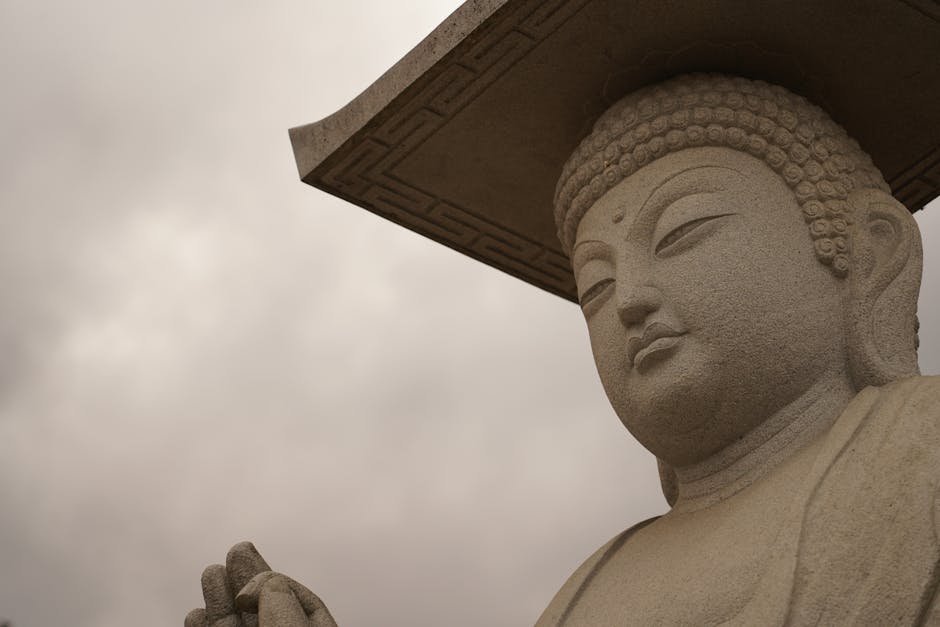The concept of morality, a fundamental aspect of human existence, is intricately woven into the fabric of religious belief systems. Different faiths, with their unique histories and philosophical underpinnings, offer contrasting yet often complementary frameworks for understanding right and wrong. This exploration delves into how various religions define and articulate their moral codes, highlighting both similarities and profound differences in their approaches.
A cornerstone of any moral system is its source. Many religions posit a divine origin for morality, believing ethical principles are bestowed by a transcendent being or a higher power. In Judeo-Christian traditions, for instance, God’s commandments, as revealed through figures like Moses, form the bedrock of ethical conduct. The Ten Commandments, with their emphasis on prohibitions against murder, theft, and false witness, provide a clear set of guidelines for righteous living. This concept of divine decree informs behavior, shaping personal responsibility and societal norms. Similar frameworks appear in Islam, where the Quran serves as a comprehensive guide to life, encompassing personal ethics and societal regulations. The teachings of the Prophet Muhammad, often interpreted as embodying God’s will, underpin Muslim conceptions of morality.
Other religious traditions emphasize a more internalized approach to morality, prioritizing individual conscience and spiritual growth. Eastern religions, such as Buddhism and Hinduism, often focus less on rigid sets of rules and more on cultivating virtues like compassion, mindfulness, and non-violence. In Buddhism, the Eightfold Path highlights ethical conduct as a stepping stone towards enlightenment, stressing the importance of right speech, right action, and right livelihood. The concept of karma, deeply ingrained in Hindu thought, emphasizes the interconnectedness of actions and their consequences. Actions, good or bad, shape not only an individual’s present but also their future lives. This philosophy shifts the focus from external adherence to rules towards the internal motivation behind behavior.
A fascinating contrast emerges when comparing the emphasis on individual action with a social dimension. Certain religious frameworks, especially those rooted in the concept of a divine law, place significant weight on community and societal well-being. Religious laws often extend beyond individual piety to encompass the functioning of society, regulating aspects like marriage, family, and justice. In many Abrahamic faiths, for instance, these frameworks often prescribe a clear moral code that dictates the responsibilities of individuals within a community. Conversely, faiths that prioritize inner transformation, such as certain schools of Buddhism and some interpretations of Taoism, might emphasize the individual journey over societal implications, although social harmony remains a desirable goal.
An in-depth examination of moral precepts reveals varied understandings of the human condition. Some faiths conceive humans as inherently flawed beings, needing divine guidance to achieve righteousness. The concept of original sin, central to Christianity, emphasizes human weakness and the necessity of grace in overcoming sinful tendencies. In contrast, some Eastern philosophies envision humans as inherently capable of enlightenment and capable of recognizing their inherent connection with a higher truth, placing less emphasis on the inherent weakness of the human spirit.
Different religions also grapple with ethical dilemmas in unique ways. The concept of forgiveness plays a crucial role in many faiths. Christian teachings emphasize the importance of seeking and granting forgiveness, often intertwining it with concepts of divine mercy and grace. Buddhist philosophy, in its focus on compassion and the interconnectedness of beings, often emphasizes understanding the motivations behind harmful actions rather than solely focusing on retribution.
Furthermore, the concept of duty and responsibility varies across faiths. In some traditions, duties are clearly outlined, often stemming from the concept of a divine mandate. In others, the emphasis shifts towards personal responsibility, with the individual accountable for their actions and consequences. This interplay between prescribed duties and personal responsibility informs individual moral choices.
The multifaceted nature of morality demands a nuanced understanding of religious perspectives. Although varying in their approaches, many faiths highlight the importance of compassion, empathy, and justice. Regardless of the specific theological framework, a shared aspiration for a virtuous life, imbued with ethical action, underlies numerous religious traditions.
Furthermore, contextualization plays a significant role in understanding the application of religious moral codes. Cultural factors, social pressures, and individual interpretations all influence how individuals and communities translate abstract principles into concrete actions. The historical evolution of religious texts and interpretations allows for various interpretations, often adapting to the changing times and circumstances.
In conclusion, the diversity in how different religions define morality reflects the complexities of human experience. While rooted in distinct traditions and beliefs, these frameworks frequently address universal questions of right and wrong, prompting reflection on the nature of ethics, the human condition, and the search for a virtuous life. An understanding of these varied approaches can foster greater appreciation for the richness and diversity of human thought and belief. It underscores the importance of acknowledging the diverse paths toward moral excellence and the common threads that connect them.
